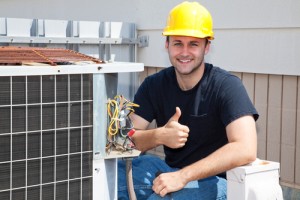 When your customers purchase new heating or cooling equipment for either commercial or residential applications, they will benefit significantly from an HVAC life cycle cost assessment. This type of analysis will tell them how much the new equipment will cost to operate over its life span and can help you and your customers identify the HVAC systems that will give the best long-term service for the money.
When your customers purchase new heating or cooling equipment for either commercial or residential applications, they will benefit significantly from an HVAC life cycle cost assessment. This type of analysis will tell them how much the new equipment will cost to operate over its life span and can help you and your customers identify the HVAC systems that will give the best long-term service for the money.
Keep the following points in mind for your HVAC life cycle cost assessment:
- Find the best possible information sources: Include as much information about HVAC system costs as possible. Look for life cycle cost information from industry sources, professional organizations and manufacturers. The closer you get to actual costs, the more accurate and reliable your assessment will be.
- Don’t be afraid to make estimates and assumptions: Sometimes a cost analysis requires that you make estimates and assumptions, especially in areas where accurate cost data is hard to find or simply not available. Make your estimates based on the best and most complete data you have and document your process. Well-supported assumptions are better than guesses or information gaps.
- Gather data on maintenance and repair: One of the biggest elements of lifetime cost is maintenance and repair. A well-maintained HVAC system will work well for a long time, whereas neglected equipment will break down often and fail earlier. Factor in the average price of regular preventive maintenance and how much common repairs are likely to cost.
- Look for real-world examples: Provide references for your customers to owners of the type of HVAC equipment they’re thinking of buying. Individuals who have had direct experience with the advantages and disadvantages of particular brands or types of HVAC systems can provide insight that simply can’t be found anywhere else. Take into account variables such as maintenance, equipment usage patterns and overall condition.
Construction Monitor provides the most up-to-day building permit and housing start data for cities and communities throughout the country. Contact us today for more information on HVAC life cycle cost assessment and how an analysis will support choosing the best HVAC equipment for customers’ needs.
Image via Shutterstock.com
